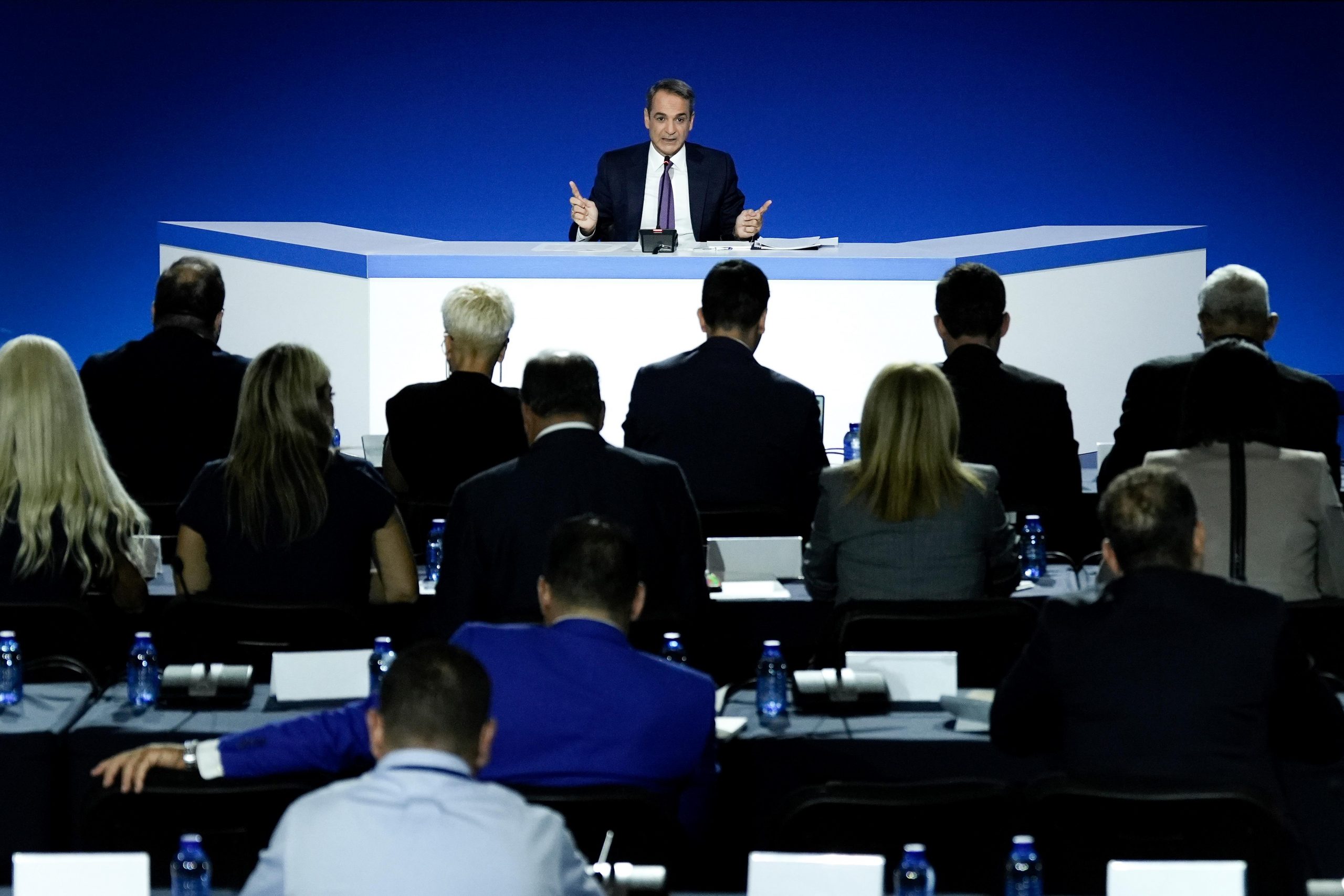Greek Prime Minister Kyriakos Mitsotakis on Sunday dismissed an insinuation of a “reform fatigue” on the part of his center-right government, is now into its fifth year of power, while also responding that its four-year term will be exhausted until 2027 – in response to a ubiquitous question, repeatedly asked by local reporters, of possibly snap elections.
PM Mitsotakis appeared at the customary press conference on the sidelines of the annual Thessaloniki International Fair (TIF) early on Sunday afternoon, fielding questions from media outlets called out by the government spokesman for roughly two hours.
As with previous such appearances at TIF, the biggest and most prominent trade exhibition in the country, Mitsotakis again referred to the “TINA” slogan – “there is no alternative” – saying there is no comparable proposal to replace his New Democracy (ND) government in Greece at the moment.
“(Ruling) ND is the dominant political force (in Greece)… the European Parliament results (last June) were not that bad, but below our expectations. We’ve won five (consecutive) elections,” he said at the beginning of the wide-ranging press conference, which was broadcast live by a handful of television stations.

Press conference held by Greece’s PM and president of the New Democracy, Kyriakos Mitsotakis, during the 88th Thessaloniki International Fair (TIF) in Thessaloniki, Greece on September 8, 2024.
In quick order, Mitsotakis acknowledged that reforms come with reactions and entail an “election cost”, nevertheless governments are judged at the end of their term.
In answer to a question posed at previous such press conferences, he also denied any plan to leave the prime minister’s post for a European position.
Asked about the burning issue of high inflation – which erupted in the post-pandemic period – and has taken a distinct “bite” out of households’ disposable income, PM Mitsotakis merely echoed several of his top ministers’ recent statements, namely, that inflation is de-escalating.
Rising food prices, practically on a month-to-month basis and often higher than the average EU rate, have been especially concerning and painful for consumers in the country.
In turning to what he called his government’s top goals, Mitsotakis said the first is an increase in salaries in the country, both on average and in terms of the minimum monthly wage level.
“In 2019 the first priority was unemployment; we had a 17% (jobless rate), now we have 9%. Are they (job spots) all well paid? No, but it’s better to work than not to work at all. We’ve created 500,000 jobs (since 2019),” he said.
The second major goal of his government, as he said, is improving the country’s national healthcare system.
“Not everything is bleak in the national healthcare system (ESY). We’re implementing an attractive incentive framework for staff shortages in hospitals in remote and border areas. We’re giving more flexibility to ESY physicians to perform supplementary work,” he said, referring to a liberalization of the regime allowing state-appointed medical practitioners to have some private sector income as well.



